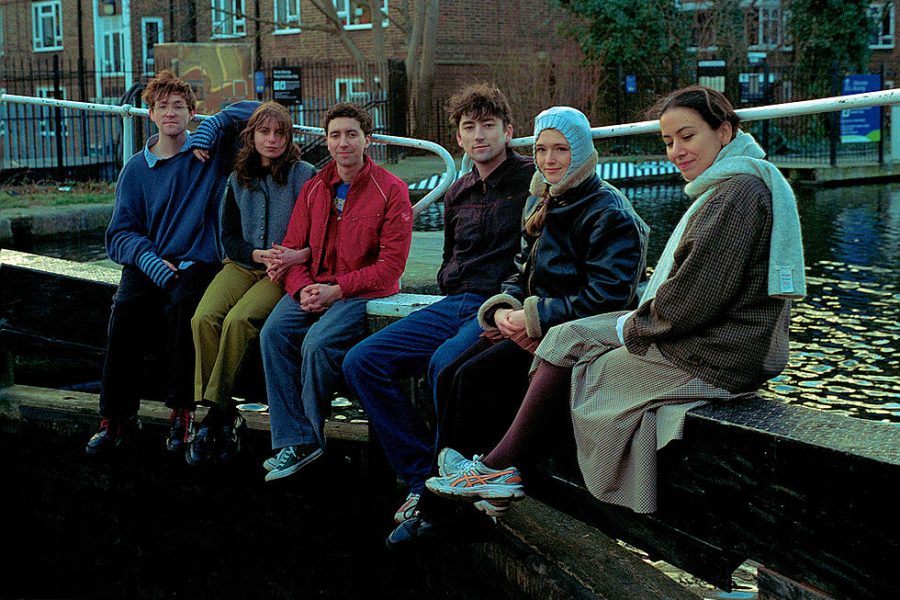Album Review: “Live at Bush Hall” Triumphs Against All Odds
April 21, 2023
On January 31st, 2022, Isaac Woods announced that he was leaving Black Country, New Road. The British septet burst onto the scene with their 2021 album For the first time, with Woods’ poetic and introspective lyrics playing a key role in defining the band’s identity. A striking blend of classical music and punk rock, the band had become an indie sensation by the time their second album, Ants From Up There, was released in 2022. AFUT is a deeply cathartic emotional journey with lyrics much less jaded and more vulnerable than those of its predecessor. It also pivoted away from grungy guitar towards a softer and more orchestral sound. The album was met with universal acclaim (NME gave it a perfect score and it was Paste Magazine’s fifth best album of the year), but was a breaking point for Woods. In a statement released on the band’s social media accounts, Woods described feeling “sad and afraid”, “the kind of…feeling that makes it hard to play guitar and sing at the same time.” Creating such reflective music took a large emotional toll on him. And so Woods amicably parted ways with the band. But many were left wondering if the group would even have a future without him at the front. Now a sextet, Black Country, New Road (BCNR) eventually began touring again in the fall of last year. This time, they would only be playing new material composed without Isaac’s involvement. Their next tour took them across the globe, culminating in a performance at London’s Bush Hall which would be recorded and released online as the aptly named album Live at Bush Hall.
Instead of having just one front-person, the responsibility is now shared by bassist Tyler Hyde, pianist May Kershaw, and saxophonist Lewis Evans. Georgie Ellery still acts as BCNR’s violinist with Luke Mark on the guitar and Charlie Wayne drumming. The album opens with “Up Song”, a powerful assertion of the band’s continued existence driven by Hyde’s strong vocals. It’s much louder and more energetic than any of the band’s previous work but the instrumentalists maintain the extreme level of coordination amongst each other that lent the group its unique sound to begin with. Bursting with life, the group constantly seems as if it is on the verge of spontaneous combustion but instead manages to deftly interweave a number of musical phrases as it glides to a crescendo. The next track is titled “The Boy”. This song is much softer and folkier than the opener and takes the form of a short fable about longing for the impossible. Kershaw’s fluttery vocals perfectly complement the storybook tone of the song. As the fable reaches its climax, Hyde also lends her powerful voice to the song. “I Won’t Always Love You”, conversely, is a deeply emotional ballad. It reminded me of a Mitski song with its repetitive structure (which is not a bad thing at all). As the song progresses, it feels as if the narrator is getting more and more desperate until it reaches its climax in a saxophone-driven jazzy cathartic finale.
The fourth track, “Across The Pond Friend”, is one of my favorite songs on the album. Here, Lewis Evans finally takes the lead with something both theatrical and yet heavily grounded in reality. The song is able to make the listener feel as if they are flying before swiftly dragging them back down to Earth. It’s a sweet and deeply moving ode to lost friendship that feels especially poignant considering the departure of Isaac Woods from the band. That track is then followed by “Laughing Song”, another slow ballad wherein Kershaw sings again. It’s one of the quieter songs on the album and a welcome change of pace. Evans and Hyde share a duet on “The Wrong Trousers”, a gut-wrenching number about the end of a relationship. Wayne’s percussion gets a chance to shine here: the soft rattling of cymbals perfectly underscores the emotional vocals.
Towards the end of the album comes what is far and away my personal favorite track. “Turbines/Pigs” is a nearly ten-minute long track led by May Kershaw. It perfectly illustrates why I and so many others love Black Country, New Road. The song starts out as a slow and delicate ballad, wherein only Kershaw’s voice and piano can be heard. It’s filled with surreal and dream-like imagery as May reflects on her own sense of self-worth, asking the listener to not “waste [his] pearls on [her]” as she is “only a pig”. The song slowly escalates until all the emotional tension is released in a deeply cathartic second half, reminiscent of the best moments on Ants From Up There but without any of the theatrical elements of “The Place Where He Inserted the Blade” or “Basketball Shoes”. Ellery’s violin first compliments Kershaw’s soft piano-playing. The rest of the band joins in soon after. No single instrument overshadows the others. Instead, the band members play off each other in beautifully orchestrated harmony.
The penultimate track is “Dancers”–a song wherein Hyde presumably reminisces about a particularly-frustrating dance instructor. These feelings of bitterness are exacerbated in the chorus, during which she often repeats the line “Dancers stand very still on the stage”, taking the place of the dance instructor she so despises. I found myself very easily able to empathize with Hyde’s visceral anger. The final song is a reprise of the opener (“Up Song”). It plays off the triumphant sound of that beginning track but is much more reflective and solemn. It’s a signal of a new beginning for the band.
Live at Bush Hall is a triumph. From the first track, any doubt in my mind that BCNR couldn’t exist without Woods was eliminated. All six talented members of the band get a chance to shine in this instrumentally diverse and touching collection of songs. Each track overflowing with heart and empathy. I am extremely excited for the future of Black Country, New Road, and I expect any reader who listens to the album to feel similarly afterwards as well.


















